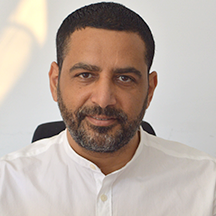Employment in MENA during the pandemic: persistent inequality
While employment rates in countries in the Middle East and North Africa have largely recovered since the initial shock of the pandemic, wages and hours of work have been more variable in response to changing economic conditions. As research reported in this column shows, non-wage and informal wage workers have been particularly vulnerable to the negative impacts of Covid-19.
The impact of Covid-19 on labour markets in MENA
Employment is recovering but income losses persist in MENA countries in the second year of the pandemic. Two recent ERF policy briefs summarised in this column illustrate the mix of recovery and ongoing challenges for households and firms.
Why does growth generate so few and such low-quality jobs in North Africa?
A new report examines the type and quality of jobs created in Algeria, Egypt, Sudan and Tunisia, and how they relate to patterns of economic growth. As this column explains, the history of dependence on oil and other resources as the engines of growth in these economies has meant a large flow of rents into government coffers, which has enabled an outsized but unsustainable role for the public sector as an employer.
Vulnerable workers in MENA a year into the pandemic
How are labour markets in the Middle East and North Africa performing a year into the pandemic? This column assesses the impact of the crisis on employment and earnings using data from the second wave of the ERF Covid-19 MENA monitor surveys in Egypt, Jordan, Morocco and Tunisia. There are glimmers of progress but persistent problems in these four countries’ labour markets.
The impact of Covid-19 on labour markets: evidence from Morocco and Tunisia
How is the Covid-19 crisis affecting jobs and business in the MENA region? This column reports evidence from mobile phone surveys carried out in November in Morocco and Tunisia. The results, reported in a new ERF Policy Brief, indicate that vulnerable workers, small entrepreneurs and farmers have borne the brunt of the pandemic.
Pension reform that avoids harming MENA labour markets
To tackle the deficits in their pension systems, should governments in Arab countries raise social security contributions, reduce pension levels or increase the statutory retirement age? This column summarises the results of research assessing the costs and benefits of different pension reforms in terms of their impact on different generations and on the labour market.


